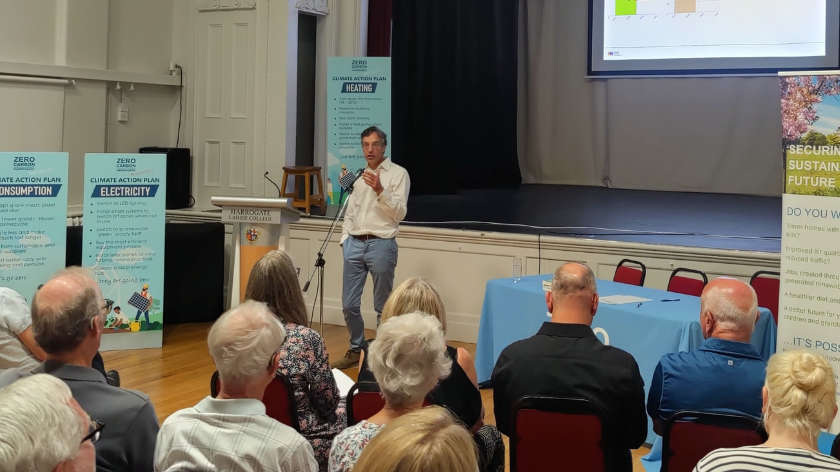
Professor Piers Forster was speaking last week after the Zero Carbon Harrogate AGM when he gave a wide-ranging presentation about what actions the new UK government should take to meet its net-zero goals.
Prof Forster, who lives in Harrogate, is the interim chair of influential body the Climate Change Committee. The organisation was set up in 2008 to give independent advice to the government about climate change.
Yesterday, it published its latest annual report which includes a list of ten policy recommendations aimed at helping the country reach net-zero emissions by 2050.
But it warned the UK is not on track to cut emissions by 68% from 1990 levels by 2030, which is another one of the government’s key targets.
Prof Forster said how successful we are as a country will be down to Labour’s willingness to reverse some of the changes brought in during Rishi Sunak’s time as prime minister.
He said the UK had been successful in reducing emissions under the leadership of Boris Johnson and Theresa May but things were beginning to go backwards under Mr Sunak.
The Conservative PM delayed a plan to phase out gas boilers in homes, announced new oil and gas licenses in the North Sea and he also put back a proposed ban on new petrol and diesel cars by five years to 2035.
Prof Forster said:
“He said the climate policies were too expensive for the consumer and the population.
"Our job as a committee is to look at evidence but there was no evidence they are more expensive.”
“The most secure and cheapest way we can provide energy is through UK-built renewables, jobs and industry so we’re not reliant on imported gas.”
Professor Forster showed graphs about how the UK is doing on certain climate metrics.
Whilst some areas have been strong, such as the rollout of electric vehicle charging points in public places, others have a long way to go.
There were graphs that showed the number of trees currently being planted to capture CO2 is inadequate, the transition to electric vans is way behind schedule and the number of heat pumps installed in homes is significantly off-track.
Professor Forster said green technology must be made cheaper so the whole country, and not just those who can afford it, are brought along with the “green transition.”
He also discussed future advances that might improve the climate such as nuclear fusion energy and carbon capture for aviation, but these innovations could be decades away and his message was that local action can make a difference today.
Prof Forster said:
“Changes aren’t done by a government in Westminster they have to be made by our communities.”



 Music lineup announced for return of Harrogate Food and Drink Festival
Music lineup announced for return of Harrogate Food and Drink Festival
 Successful Yorkshire debut for Harrogate rugby star
Successful Yorkshire debut for Harrogate rugby star
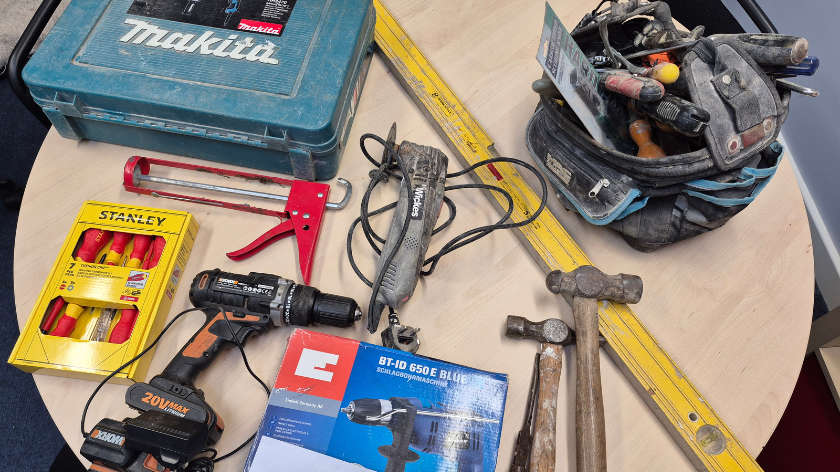 Primary school rallies to support neighbour blighted by thieves
Primary school rallies to support neighbour blighted by thieves
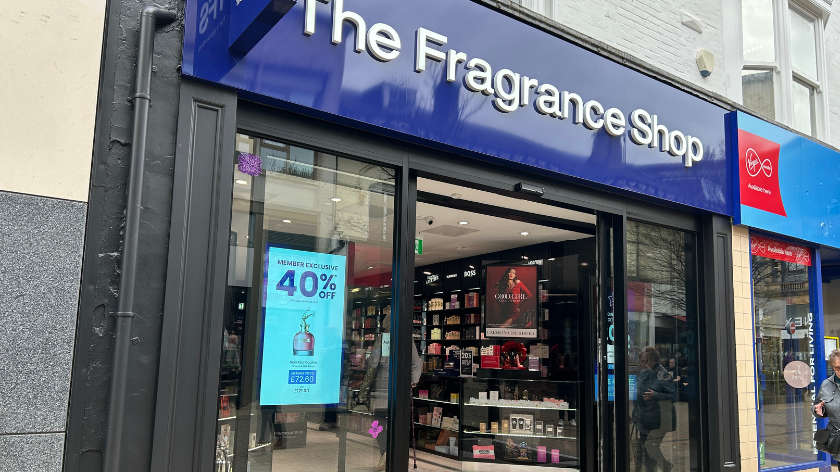 The Fragrance Shop opens in Harrogate town centre
The Fragrance Shop opens in Harrogate town centre
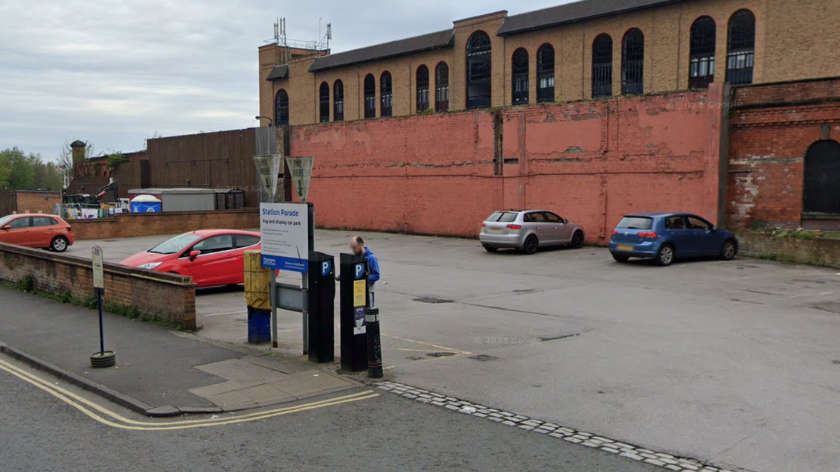 Parking fees set to rise across North Yorkshire
Parking fees set to rise across North Yorkshire
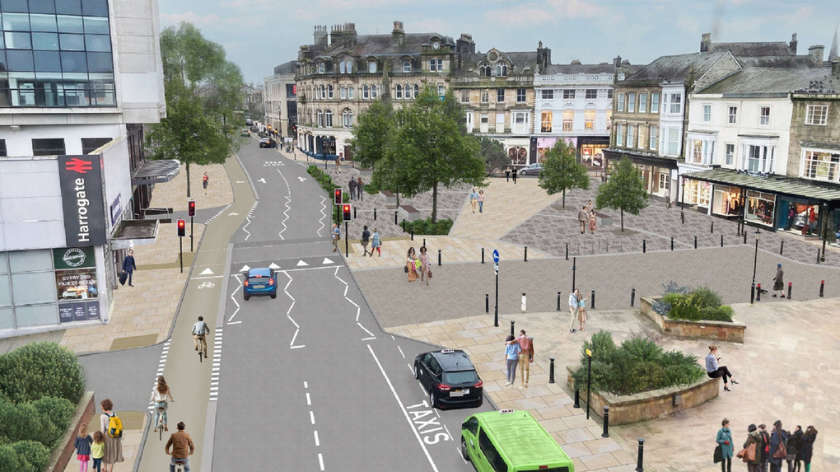 Campaigners seize on council leader's Gateway comments
Campaigners seize on council leader's Gateway comments
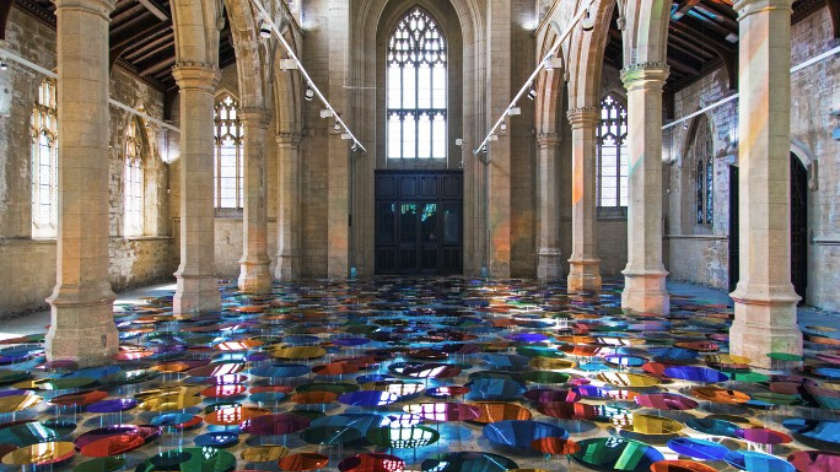 Mercer Art Gallery to host immersive light and colour exhibition
Mercer Art Gallery to host immersive light and colour exhibition
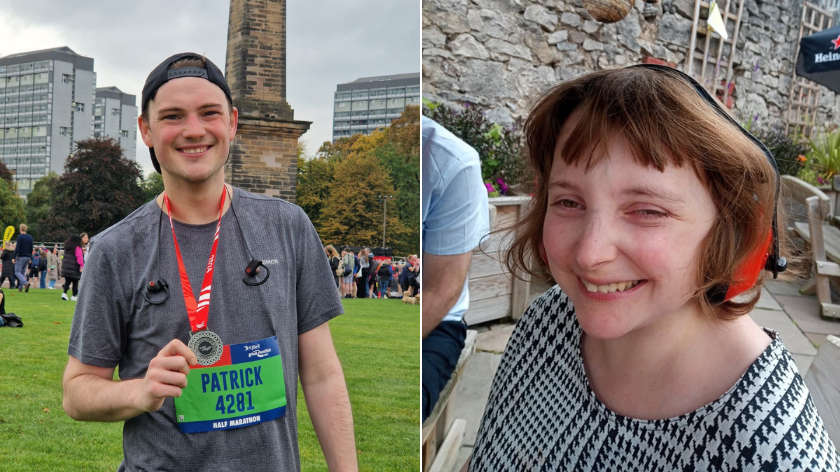 Runner to take on marathon for Harrogate charity that 'transformed' his sister's life
Runner to take on marathon for Harrogate charity that 'transformed' his sister's life
 Harrogate residents warned of door-to-door scammers
Harrogate residents warned of door-to-door scammers
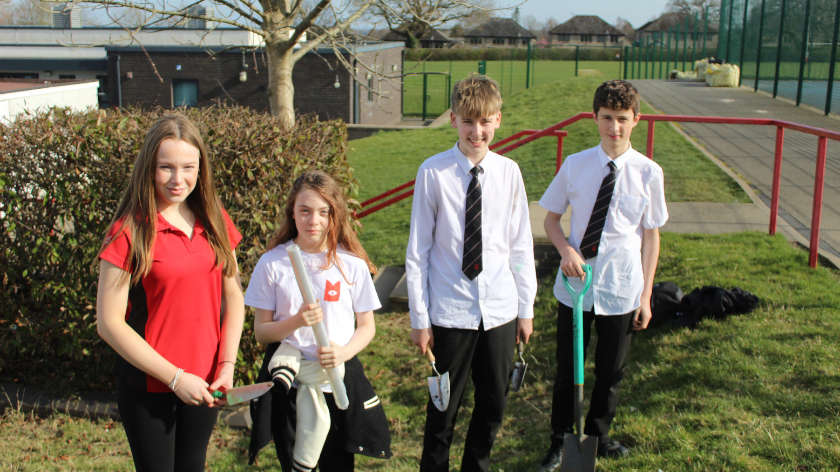 Rossett School to plant over 300 trees throughout grounds
Rossett School to plant over 300 trees throughout grounds
 Motorcyclist in 'serious condition' following Ripley Road crash
Motorcyclist in 'serious condition' following Ripley Road crash
 Is this Bettys Easter egg the most expensive in the UK?
Is this Bettys Easter egg the most expensive in the UK?
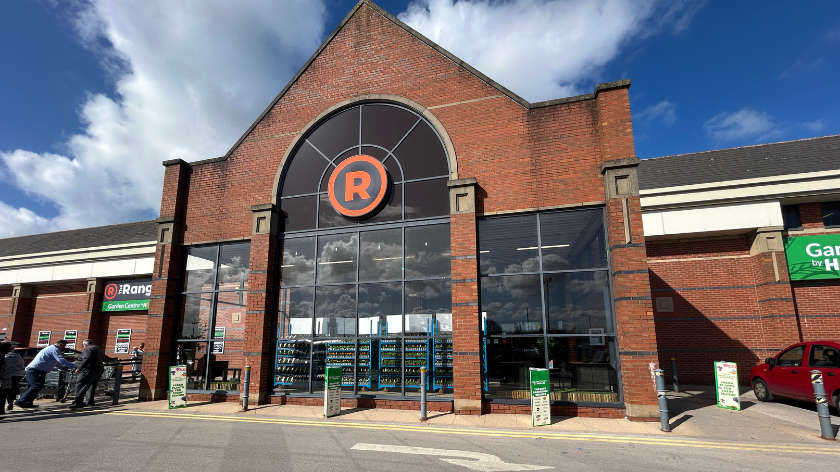 The Range opens new Harrogate store
The Range opens new Harrogate store
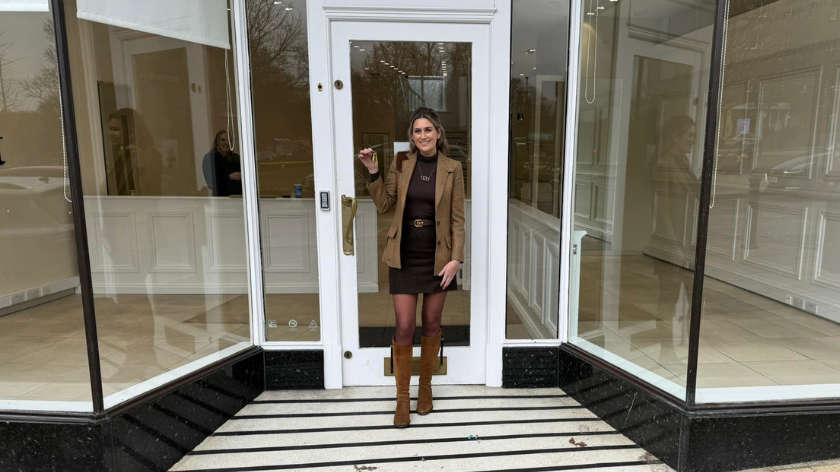 Country fashion brand to open in Harrogate town centre
Country fashion brand to open in Harrogate town centre
 Harrogate sisters' fashion brand named as finalist for women's style award
Harrogate sisters' fashion brand named as finalist for women's style award
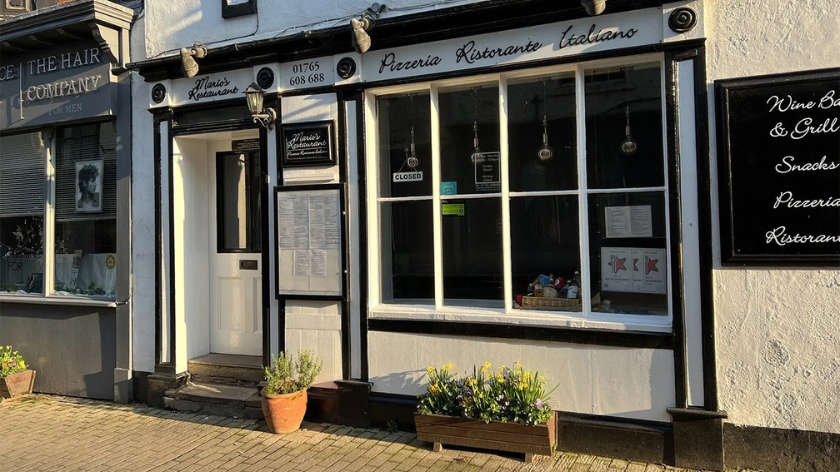 National recognition for popular Italian restaurant in Ripon
National recognition for popular Italian restaurant in Ripon
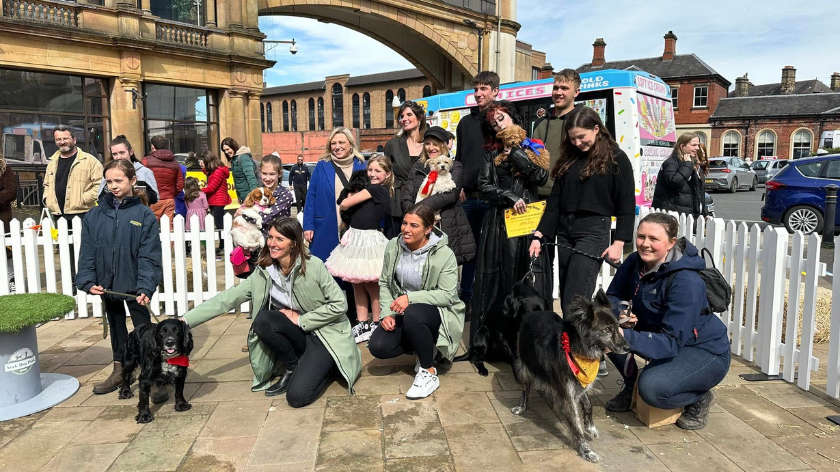 Categories revealed ahead of Harrogate Dog Show
Categories revealed ahead of Harrogate Dog Show
 Edible garden to feature at Harrogate Flower Show
Edible garden to feature at Harrogate Flower Show
 Opening date revealed for new Harrogate jeweller
Opening date revealed for new Harrogate jeweller
 Police issue CCTV after thefts from Harrogate Sainsbury's
Police issue CCTV after thefts from Harrogate Sainsbury's








